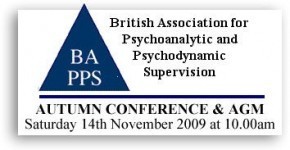Why Counselling or Therapy?
People seek counselling or longer term psychotherapy for a wide variety of reasons, not necessarily for diagnosable ‘problems’. Immediate benefit can be gained from consulting with a counsellor/psychotherapist about the present circumstances – where you are right now as well as where you have come from and where you are going to (all of which are covered in longer term work whether once weekly, twice or three times weekly or on a fortnightly/monthly basis). I tend to see the person before identifying the problem. Real life is what brings most of my clients to seek help and support, many people find themselves at a juncture in their life where they would like someone to accompany them as they make changes for the better.
COUNSELLING AND PSYCHOTHERAPY – what are the differences and distinctions?:
There are many and various types of therapy, but research and my own extensive experience show that what really matters is whether the counsellor/psychotherapist and client are able to develop a working relationship based on complete confidence, trust and acceptance. During the sessions I aim to listen to the whole of your story carefully and objectively, whilst respecting your feelings. I can offer interpretation,challenge and ideas, I will remain mindful that counselling or personal therapy is your space for you to use in a way that you feel is most beneficial.
What is Counselling?
It is usually on a once weekly basis, aiming for the same time every week (in order that that begins to feel like ‘your’ time). Sessions are 50 minutes long. It is possible to extend to once fortnightly or monthly after an initial period (6-8 sessions) of once weekly work – but the ideal is to stick to a regular once weekly arrangement.
Counselling is about listening, being heard and understood – the ultimate aim is to help you gain a clearer perspective on your situation and of course to feel better!
Even though counselling is not about giving advice it can clarify the options available and help you to decide how you might proceed. Throughout the process the counsellor’s response is guided by their ethics and their professional objectivity, and their complete confidentiality – in other words, nothing you say to me will ever be repeated anywhere else and this is what marks it out from any other kind of relationship.
Even though counselling is non-directive it can be profoundly life changing.
What is Psychoanalytic/Psychodynamic Psychotherapy?
Takes place twice or three times a week, with 50 minute sessions. It is a more intensive model and requires more commitment of time and money. Psychoanalytic/psychodynamic psychotherapy is a talking treatment like counselling based on the theories and practice of psychoanalysis. Its primary aim is to help clients resolve their entrenched difficulties by increasing their awareness of hidden conflicts that lie at the source of their problems. The therapist does not provide any answers but instead helps the patient explore the unconscious forces at work in their lives; especially those responsible for repeating damaging patterns in their relationships, as well as those preventing them from leading a more fulfilled life. As self awareness grows people experience not only relief from their symptoms but a renewed inner strength that can become the foundation for permanent change. While this can be a long process the benefits can put you on a sound footing with much deeper personal knowledge for the rest of your life. This can be an intensely personal and emotional experience but many report that their outlook has been changed in profound and healing ways.
How long does Psychoanalytic/Psychodynamic Psychotherapy take?
This varies from person to person and you will talk this through carefully, reviews can take place at any point in the work. It is unlikely to take less than two years and might well take longer. It depends primarily on how useful and beneficial the client’s experience of it is and sometimes on the nature of the problem and how open the analysand/client is to change. It also depends on the frequency of the therapy, in particular the client’s ability to attend more than one session a week.
What makes Psychoanalytic/Psychdynamic Psychotherapy different from Counselling?
Many people who have long standing problems need to address issues at a deeper level in order to make genuine and lasting changes in their personality and to continue their emotional development. Psychoanalytic and psychodynamic psychotherapists are trained to tune in and think about the patient’s unconscious conflicts at great depth and breadth, for instance, using their dreams, impulses and their relationship with the therapist to arrive at new insights.
Can Psychodynamic/Psychoanalytic Psychotherapy help you?
It can help anybody with long standing difficulties such as depression, anxiety, feelings of worthlessness, recovery from trauma or sexual abuse or ongoing general difficulties relating to other people. Such painful feelings often have their roots in early experience, and to this extent the whole of the person’s life is examined in detail. It can provide an effective treatment for people with specific disorders such as obsessional behaviour, panic attacks, eating disorders, or psycho-somatic conditions. More generally, it is often seen by those who agree to undertake the process as a journey of great self discovery and personal growth.



